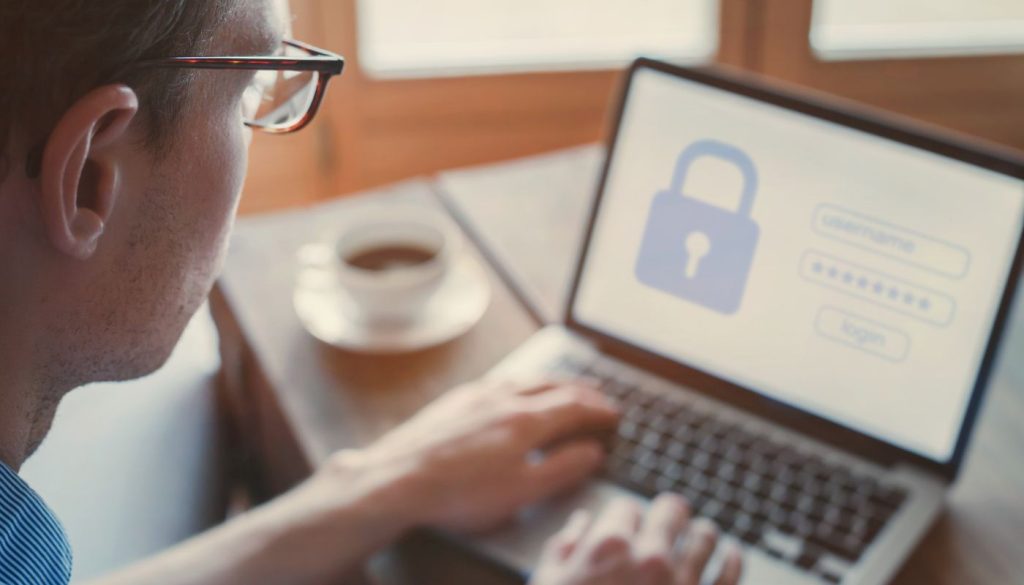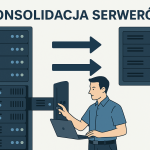
Using the Internet safely is extremely important these days, when the number of cyber threats is constantly increasing. In order to protect your personal information and privacy online, it is advisable to follow a few important rules.
At the outset, it is worth reviewing a few rules:
- Regular software updates are a must,
- Manufacturers frequently issue security patches that protect against new dangers,
- In addition, strong passwords are key to protecting user accounts – they should be complex and contain a variety of characters: letters, numbers and symbols,
- The inclusion of two-factor authentication provides another layer of defense for online accounts,
- is an additional form of verification that requires a second element of authorization beyond the password itself.
Let’s use only secure sites with an SSL certificate, which ensures the encryption of transmitted information. This guarantees that the data will not be intercepted by third parties during the connection.

When browsing the Internet, caution and skepticism are irreplaceable. Especially when opening messages or links from unfamiliar senders, as cybercriminals often use phishing to obtain personal information.
- It’s also good to take care of cyber hygiene by using antivirus software and firewalls to protect devices from malware and other threats,
- Regular system scans enable detection of potential problems at an early stage.
By practicing these principles on a daily basis, we significantly increase our online security and minimize the risk of becoming a victim of a cyber attack.
Rules for safe use of the Internet
Here are some key rules that should not be forgotten when using the Internet.
Creating strong passwords
Creating strong passwords is the cornerstone of protecting our personal information online.
Strong passwords should meet the following criteria:
- consist of 12-14 characters,
- contain both uppercase and lowercase letters,
- include numbers,
- contain special characters.
It is important to avoid obvious elements, such as birth dates or names of loved ones.
Use a different password for each account. That way, even if one of them is compromised, the risk of unauthorized access to information is greatly reduced. In addition, it is a good idea to regularly update passwords on existing and new accounts as an additional layer of protection against threats.
Following these simple rules significantly improves online security.
The importance of two-factor authentication
Two-factor authentication is a key component of network security. It involves adding an extra layer of verification to a user’s password, making it much more difficult for unauthorized people to access an account. Even if someone knows our password, without a second component, such as an SMS code or an authentication application, there is no chance of logging in.
Statistics show that using two-factor authentication reduces the risk of data theft by as much as 99%. This means more effective protection against cyber attacks and fraud for those using this form of security.
The implementation of this solution is uncomplicated. Most popular websites offer this feature. Thus, anyone can easily improve the security of their online data in a few steps.
Software updates and their impact
Software updates play a key role in securing systems against cyber threats. Regular installation of such updates eliminates vulnerabilities that could be exploited by hackers. Manufacturers often release patches to increase user security and reduce the risk of attacks.
Without the support of a professional IT company to monitor and implement the latest updates, systems become more vulnerable. Therefore, using IT professionals to ensure regular updates and their management is extremely important.
Systems without updates are attractive targets for cybercriminals. Therefore, it is extremely important to keep all devices on the latest software versions. By doing so, you can more effectively protect your personal data and avoid financial losses from cyber attacks.
The importance of skepticism and caution online
Nowadays, the Internet has an extremely important function, so healthy skepticism and caution online are indispensable. Cybercriminals often use phishing to obtain personal information through fake emails or websites. It is important to carefully verify email senders and avoid suspicious links and attachments from strangers.
Being vigilant online also means checking information sources before making any decisions. Users should be mindful of the dangers of sharing data on social media and take special care with their privacy settings.
With healthy skepticism, you can avoid financial fraud and loss of valuable personal information. It’s also a good idea to use appropriate security software, such as antivirus and firewalls, which provide an additional barrier against malware and other threats.
With a responsible approach, users can enhance their online security, significantly reducing the risk of becoming a target of cyberattacks.
Safe browsing
Safe Internet browsing is key to protecting personal information and privacy online. To stay safe online, it’s a good idea to use only sites that have an SSL certificate. It ensures that your data is encrypted, reducing the risk of unauthorized interception. You can recognize this certificate by the “https://” at the beginning of the website address.
Also avoid clicking on suspicious links and ads that may lead to dangerous sites or phishing attempts by cybercriminals. Regularly checking your browser’s privacy settings is another step toward increased protection. Using incognito mode can also help reduce traces of your online activity.
Is it safe to use Wi-Fi?
Using Wi-Fi in public places carries significant risks. Such networks are often poorly secured, making them easy for hackers to access. They can intercept our personal data, including passwords or credit card information. For this reason, it is advisable to avoid logging into banks or other important services using such connections.
However, if it is necessary to use public Wi-Fi, it is a good idea to consider using a VPN (Virtual Private Network). A VPN provides data encryption, making it much more difficult for outsiders to steal your data. In addition, regular software updates and the use of firewalls on mobile devices and computers can further strengthen protection against potential threats.
- use of VPN for data encryption,
- Regular software updates,
- The use of firewalls on mobile devices and computers.
Following these rules significantly increases security when using unsecured wireless networks.
Security for home appliances and networks
Protecting your devices and your home network is extremely important to guard against cyber threats. Antiviruses and firewalls are the first line of defense. They enable the detection and elimination of malware, such as viruses and Trojans, that can threaten our personal data.
It is no less important to scan the system regularly. This allows you to quickly identify problems and fix them. It’s also a good idea to make sure that these tools are updated regularly so that they are immune to the latest threats.
Cyber hygiene means following online safety rules. For example, it is a good idea to avoid opening suspicious attachments in e-mails or downloading files from untrusted sources.
By taking the time to protect your devices and home network, you can significantly reduce the risk of cyberattacks.
Protecting online transactions and purchases
It is hard to imagine today’s world without online shopping. That’s why it’s worth remembering a few important rules.
- Check that your chosen shopping site has an SSL certificate,
- avoid making payments on public Wi-Fi networks,
- Before you make a purchase, read customer reviews of the online store in question,
- Choose the services of well-known online payment providers,
- Update web browsers and your device’s operating system regularly.
You can recognize an SSL certificate by the “https://” in the site’s URL. It ensures that the data sent between you and the server is encrypted, reducing the risk of interception by unauthorized persons.
Try to avoid making payments on public Wi-Fi networks. Such connections often have weak security and can be watched by cybercriminals. This carries the danger of revealing sensitive information, such as credit card details or bank account passwords.
Always read customer reviews of a particular online store before buying. Popular platforms often enjoy positive user reviews. In addition, choose the services of well-known online payment providers that offer extra protection for your transactions.
Don’t forget to regularly update your device’s web browsers and operating system. These updates typically include security patches to protect against new cyber threats.
Following these tips allows you to shop online without worrying about security and minimizes the risk of financial loss due to online fraud.
Safe use of social media
Safe use of social media requires special attention, especially when it comes to protecting personal information. The key is to properly configure the privacy settings on your profile so that content is only available to trusted friends and family. For added security, avoid sharing information like your address or phone number.
Awareness of threats such as phishing and malware is also important. Cybercriminals often use social media to spread fake messages or links leading to data theft. Be wary of suspicious messages and regularly update the security software on your devices, which is an effective way to protect against such threats.
How to use the Internet safely?
Using the Internet safely requires adherence to several key rules that effectively protect users from growing cyber threats. It is a good idea to update software regularly, create strong passwords, use two-factor authentication, and avoid suspicious messages and links.
It’s especially important to be cautious when browsing – choose sites with SSL certificates and avoid using public Wi-Fi networks without VPN support. In addition, protecting devices through antivirus software and taking care of social media privacy minimize the risk of cyberattacks.
Regular application of these practices allows for safe and informed use of the Internet, protecting users’ personal information and privacy.







